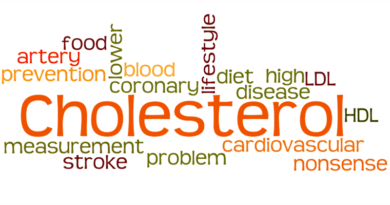CTSU funding from drug companies
Update: many of the original links appear to have been broken, so try this for the BMJ investigation reports and then click through to the full list of documents here.
The CTSU is the Oxford Clinical Trial Service Unit. Where this ends and the CTT (Cholesterol Treatment Trialists) Collaboration begins or where CTT ends and where Sir Professor Rory Collins and Colin Baigent and co. begin or end, I know not. One gets the impression that the web between the parties is not intended to be clear.
This is the group that promotes statins. This is the group that holds data on statin side effects, which it won’t share with doctors and patients who would like to know about these statin side effects. Pause to digest that for a second. There is clinical trial information about what the most prescribed drugs in the US and UK could do to humans and researchers refuse to share it.
It was the lead member of this group, Sir Professor Rory Collins, who recently attacked the BMJ for publishing two articles that referenced the same peer review article finding about statin side effects. Not only did Collins attack the BMJ he went entirely outside the journal’s normal process and demanded that the two articles be retracted. The first was by John Abramson, Harriet Rosenberg, Nicholas Jewell and James M Wright; the second was by Dr Aseem Malhotra.
I covered Collins’ attempt at censorship in this post (after the Dr Maryanne Demasi Catalyst bit). In writing the post I found a declaration of interest involving over £115 million by CTSU member, Colin Baigent, repeatedly mentioning Collins/CTT/CTSU. This is in fact less than half the funding that the CTSU has received from commercial organisations. The MRC (Medical Research Council) and BHF (British Heart Foundation) funding, which they declare more readily, is in addition to the eye watering sums that they get from the hands that feed them.
The documents published as part of the panel review
The BMJ’s editor, Dr Fiona Godlee, called for an independent panel to be set up to investigate Collins’ demands. The full report of the panel is here, (published 1 August 2014). The outcome was that the panel found that neither the Abramson et al paper nor the Malhotra paper should be retracted.
The far more interesting outcome was the supplementary information that was published alongside the panel’s full report, in the BMJ spirit of openness and honesty. In particular, some “not for publication” letters written by Collins. If you make such serious demands, that a world regarded journal retract two papers, you don’t get to call the shots on what remains hidden. Hence much “Supporting Documentation” has been published by the panel called upon to investigate Collins’ demands.
Letter SP17, dated 31 March 2014, has an interesting “P.S.” (direct Collins’ quotations in blue and italics for ease of reading).
“P.S. Conflicts of interest: There have been a number of comments in the BMJ and elsewhere about potential conflicts of interest in this area, so it may be helpful to provide you with some background. CTSU’s coordination of the Cholesterol Treatment Trialists’ Collaboration (CTTC) has been funded by the Medical Research Council and British Heart Foundation, without any commercial funding.”
You can read the full P.S., for it is quite long. It ends as follows:
“As we are all aware, a range of potential conflicts of interest exist and it is important that there is transparency (as, for example, with the BMJ’s advertising and sponsorship revenue from vaccine manufacturers which it inadvertently omitted to report when commenting on the MMR vaccine and autism story). With respect to CTSU, we have had a policy for more than 20 years of not accepting honoraria, consultancy or other payments directly or indirectly from industry, except for research grants and reimbursement of travel and accommodation to take part in scientific meetings (see attached)… Please could you let me have details of all conflicts of interest that have been declared by the authors of the Abramson and Malhotra papers (including the size of all payments that they have received for any statin-related work)?”
The conflicts of interest for the Abramson article were openly declared at the end of the article (as is BMJ policy) (JDA is John D. Abramson and NJ is Nicholas Jewell):
Competing interests: JDA and NJ serve as experts for plaintiffs’ attorneys in litigation involving the drug industry (including a statin). JDA has received payment for lectures from several universities, medical schools, and non-profit organisations. He was formerly executive director of health management for Wells Fargo Health Solutions.
The conflicts of interest for the Malhotra article were openly declared at the end of the article (as is BMJ policy). There were none to declare.
Competing interests: None declared.
Letter SP18, dated 14 April 2014, reiterated demands for the conflicts of interest of Abramson and Malhotra to be declared. “Please would you let me have the details of all conflicts of interest for Abramson et al and Malhotra, including the amounts of any payments that they have received for any statin-related work? This is information that should quite properly be in the public domain. In a spirit of reciprocity, I have attached the details of all grants from industry to CTSU for our research covering the past 20 years and more…” You’ll find this item – SP21 – in the supplementary information. If you open one link in this whole blog, make sure it’s this one.
This is priceless. “In a spirit of reciprocity, I have attached the details of all grants from industry to CTSU for our research covering the past 20 years and more…” Just look at that list. It doesn’t even include funding from the MRC, Cancer Research-UK or the BHF. It’s difficult keeping track of all the millions but I got to £268 million give or take a few hundred thousand. Plus, as Hannah Sutter discovered here, (point 4 especially), the MRC seems to be an indirect delivery mechanism for further pharmaceutical funding.
Who is being open and honest here?
Abramson & Malhotra declared their interests openly in their original articles, the latter having nothing to declare.
On 31 March 2014, Collins demanded “details of all conflicts of interest for Abramson et al and Malhotra” when all he needed to do was read them at the end of the articles to which he so objected. In the same letter, Collins told the BMJ “CTSU’s coordination of the Cholesterol Treatment Trialists’ Collaboration (CTTC) has been funded by the Medical Research Council and British Heart Foundation, without any commercial funding” (my emphasis).
Just two weeks later, Collins sent the BMJ “all grants from industry to CTSU for our research covering the past 20 years and more…” “In a spirit of reciprocity...” The commercial funding came to c. £268 million.
Does that seem open and honest to you?
In the most recent statin article listing Collins as an author on pubmed, scan all the way down to “funding” and the funding declaration opens with info on the China part of the study. The bit relating to Collins/CTSU etc states “the Clinical Trial Service Unit and Epidemiological Studies Unit (CTSU) at Oxford University also receives core funding for it from the UK Medical Research Council, the British Heart Foundation, and Cancer Research UK.” What about the £268 million?
Does that seem open and honest to you?
I thought I’d see when Collins last wrote for the BMJ and what he declared when he did so. He wrote about confidential data of all things! Sadly not on open view, but I have seen a copy of the full paper. At the end of the article we see the following:
Competing interests: None declared.
What, not even the fact that you have commercial agreements in place prohibiting the sharing of data? i.e. keeping that data confidential?
Does that seem open and honest to you?
The real scandal
I have followed this saga with interest because it has been a saga – of arrogance, accusations and demands. We must not let the Eastenders style drama detract from what the real scandal is here. The real scandal is that a research body holds data, which could provide vital information for patients and doctors about the serious adverse effects for the most widely prescribed drugs in the Western world and the body will not release the data. This blog confirms this fact. See the email from Colin Baigent to Dr Maryanne Demasi (the Catalyst Programme presenter who has also been censored) on 24 Sep 2013 10:44:01: “It is important to recognise that data from participating trials are not owned by the Collaboration [CTT], but remain the property of the trial sponsors, so we are not able to provide unlimited access to the combined database.”
I interpret this as – we receive £268 million from trial sponsors and it is not in their interests for side effect data to be shared. And if some patient loving cardiologist, with no such conflicts of interest, dares to suggest that statins have side effects (when we hold that information and won’t tell him) we’ll bypass the BMJ process and demand retraction.




Pingback: 109. Cochrane Collaboration Evaluates Statins for Primary Prevention of Heart Disease | Verners Views
Dear Dr Harcombe,
I am incredibly interested in your blog and this area of medicine. I’m a first year medical student currently doing a critical analysis project and as part of it I am looking into the reliability of CTTC’s research. I would love to read the supporting documents published by the panel, in particular SP21, but it’s coming up as ‘page not found’- this happens when trying to access the information through other sites too. I was wondering if the documents are no longer available, or if they are, where I could find them?
Thank you
Hi Amy
Just as well I kept a copy – I’ll email it to you!
Best wishes – Zoe
Dear Zoe
http://journals.bmj.com/site/bmj/statins/SP21+CTSU+grants+May+2014.full.pdf
This link doesn’t work as you know any chance you could let me see a copy also?
Hi Nicky
I’ve emailed it to you :-)
Best wishes – Zoe
What is the interested of the pharma illuminate to promote a drug that has its patent expired?
Hi Renato
Statins are still worth billions of dollars/£s. Many doctors will still prescribe the brands – drug reps exist to encourage them to do so. The far bigger prize though is this one:
https://www.zoeharcombe.com/2016/04/pcsk9-inhibitors-statins/
Step 1 – widen the base of people taking statins. The Lancet article coverage came with calls to double the number of people on statins in the UK to 12 million. 12 million FGS! One third of adults.
Step 2 – accept that statins do have side effects and/or argue that they don’t lower cholesterol as much as something else does (PCSK9s), which means that millions of people taking statins should be on the (massively more lucrative) PCSK9s.
Step 3 – sit back and count the money rolling in. (Estimate here that in the US alone http://www.bloomberg.com/news/articles/2016-08-16/amgen-sanofi-cholesterol-drugs-not-cost-effective-study-says – you’re looking at revenues the size of the GDP of Hungary!)
Best wishes – Zoe
Pingback: The Great Statin Con?
Pingback: Artikel om statiner, taget från Kostdoktorn (från Aseem Malhotra + Huffington Post) | Jin Shin Jyutsu Sverige
The HPS study carefully selected patients who were tolerant to statins for the study. No wonder there were few adverse reactions. I suggested to NICE that the recommend Collins’ inclusion/exclusion criteria to reduce adverse reactions. That was ignored – it would have resulted in a massive reduction in numbers taking statins – a deffinite NO-NO.
The title of the study included the phrases ” heart protection” and “cholesterol lowering” but nowhere was that proved; it could have been due to other pleiotropic effects.
The study itself was designed as a 2×2 factorial experiment with two factors – statin treatment and an anti-oxidant treatment, but the analysis of data on this design was never published. WHY??? What was the statin only versus placebo analysis? Was there an interaction?
The vitamin “cocktail” used include Vit E, a minimal Vit C dose and beta-carotene. But the one antioxidant that is depleted by statins CoQ10 was EXCLUDED. It is CoQ10 that Merck (the sponsor of this study) holds two patents combining it with its two statins so it is MUST have been known to be of value. WHY WAS IT NOT USED????
My queries on this study go on and on…………
I believe the Canadian authorities require a black box warning on the data insert suggesting concommitant use; something that the FDA, MHRA and EMA have consistently failed to recommend.
Pingback: Deconstructing Sir Professor Collins of Statinshire | Skimmed Cream
Pingback: 109. Cochrane Collaboration Evaluates Statins for Primary Prevention of Heart Disease | Verner's Views
Pingback: Confessions of the great statinator: how Sir Rory Collins told all about his commercial funding – Body of Evidence
I keep ranting about statins and then get faced with the usual undermining headline drivel like, ‘statins are fine at worst and great at best’ – even on Radio 4 :-(
This very interesting (and chilling) post will help me hone my argument, thank you.
Stunning post Zoe
I see the sales of statin drugs are falling. Thanks to your diligent detective work, we learn more about the big pharma skulduggery with every passing day. The three biggest lies in the world. Saturated fat leads to CV disease. Lot’s of starchy carbs are essential. And statins have little if any side effects. Not sure what order they should go in.
Keep telling it like it is.
Kind regards Eddie
Many thanks Zoë for sharing this. My “non” muscle ache are now gone and my brain is much clearer. Stoped eating statins for 4 month ago. Will sue them when it becomes final that they have made us eating this posion.
Hello Zoe
Small steps but important ones – although I think the real victim here will be support for (long and expensive) RCT’s and perhaps the application of evidence based medicine. In the absence of any policy makers developing a spine, industry will just see this latest challenge as an opportunity to undertake smaller placebo controlled efficacy studies. Depressing!
Zoë!
This is just a marvellous piece of information!
I just love the precision in your work!
Thank you Björn!
Dear Ms. Harcombe,
Brava to you for continuing to expose the imperial attitudes and moneyed interests that characterize the likes of Sir Rory Collins and the other Cholesterol Treatment Trialists who are hell-bent on ‘statinizing’ the masses.
As you may know, Sir Rory is pitching a full-blown hissy fit in response to the outcome of the independent panel which discredited and denied his draconian demand that the BMJ formally retract two perfectly valid opinion pieces rather than simply correct/clarify a minor statistical/semantic issue.
Here is the great man himself, still foaming at the mouth, in a shamelessly un-repentent commentary to the online US website, HeartWire/Medscape: http://www.medscape.com/viewarticle/829298.
Note: Zoe, it would be much appreciated if you, or readers of your blog, would visit the linked HeartWire/Medscape site and share your opinions. Cheers to all.